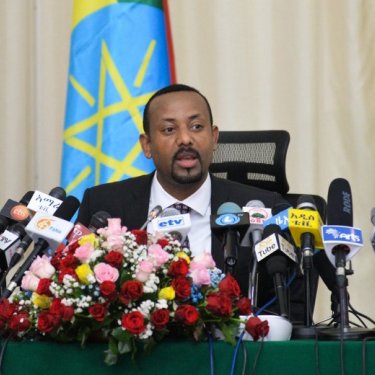New era for Ethiopia’s journalists

On the first anniversary of Abiy Ahmed’s installation as prime minister, Ethiopia no longer has any journalists in prison and hundreds of previously banned media outlets are now permitted. Reporters Without Borders (RSF) urges Abiy to go further by giving journalists more legislative protection and by turning Ethiopia into a regional press freedom model.
By releasing imprisoned journalists, unblocking access to news websites and lifting bans on media outlets that had been imposed by the previous regime, Abiy’s government has moved in a swift and spectacular manner in the 12 months since it took office on 2 April 2018.
For the first time in more than 15 years, no journalists are being held in connection with their work. A total of 264 previously banned websites and blogs have been given permission to operate. Leading Ethiopian TV channels that had been forced to operate from bases outside the country, such as OMN and ESAT, can now operate in Ethiopia. In all, 23 publications and six TV channels have been approved in recent months.
“In the past year, Ethiopia has gone from being one of Africa’s biggest jailer of journalists, only just behind neighbouring Eritrea, to being a country where journalists can now fulfil their role as a fourth estate and criticize the government without immediately being imprisoned,” said Arnaud Froger, the head of RSF’s Africa desk.“We urge the new authorities to continue the important progress that has been achieved by quickly keeping the promise to overhaul legislation that is extremely repressive for journalists, by improving access to state-held information, by abolishing Internet cuts altogether, and by acting as press freedom advocates internationally.”
Hostile legislative environment
A commission that was established to review the draconian media laws is due to issue its conclusions in the next few weeks. In the past decade, a major arsenal of legislative weapons had been created to gag the media. It included a 2009 terrorism law that was used to sentence the well-known journalist Eskinder Nega to 18 years in prison just for speculating about the Arab Spring’s potential impact on Ethiopia.
The 2008 law on mass media and access to information provides the authorities with broad powers for prosecuting journalists on defamation charges and for preventing the publication of content that could disturb public order. And, under the 2016 cyber-crime law, just sharing “defamatory” content is punishable by several years in prison.
Under these three laws, dozens of journalists and bloggers were detained, prosecuted and given arbitrary prison sentences just for exercising their legitimate right to freedom of expression and information.
Old habits die hard
The Internet, which was often disconnected under the previous government, has for the most part been restored but inter-ethnic conflicts prompted occasional cuts in 2018 that complicated accessing sources and sharing information for the journalists who were trying to cover these conflicts.
Meddling in the editorial decisions of independent media outlets also seems hard to shake off. The executives of two TV channels, ENN and Tigray TV, were summoned by the regulatory agency in June because they had not provided live coverage of a ruling party rally.
Finally, although the prime minister gave two press conferences immediately since he took office, access to state-held information is still very far from adequate and the law guaranteeing access is, for the most part, not being implemented.
Ethiopia is ranked 150th out of 180 countries in RSF’s 2018 World Press Freedom Index.



